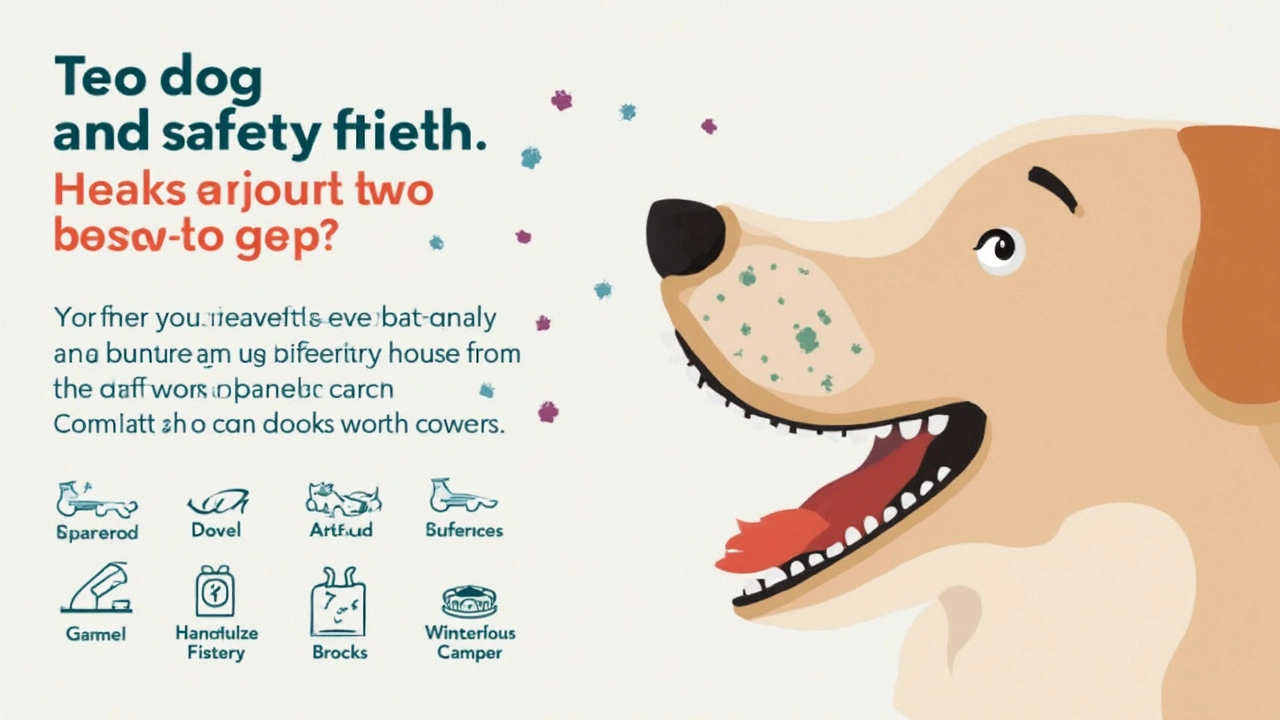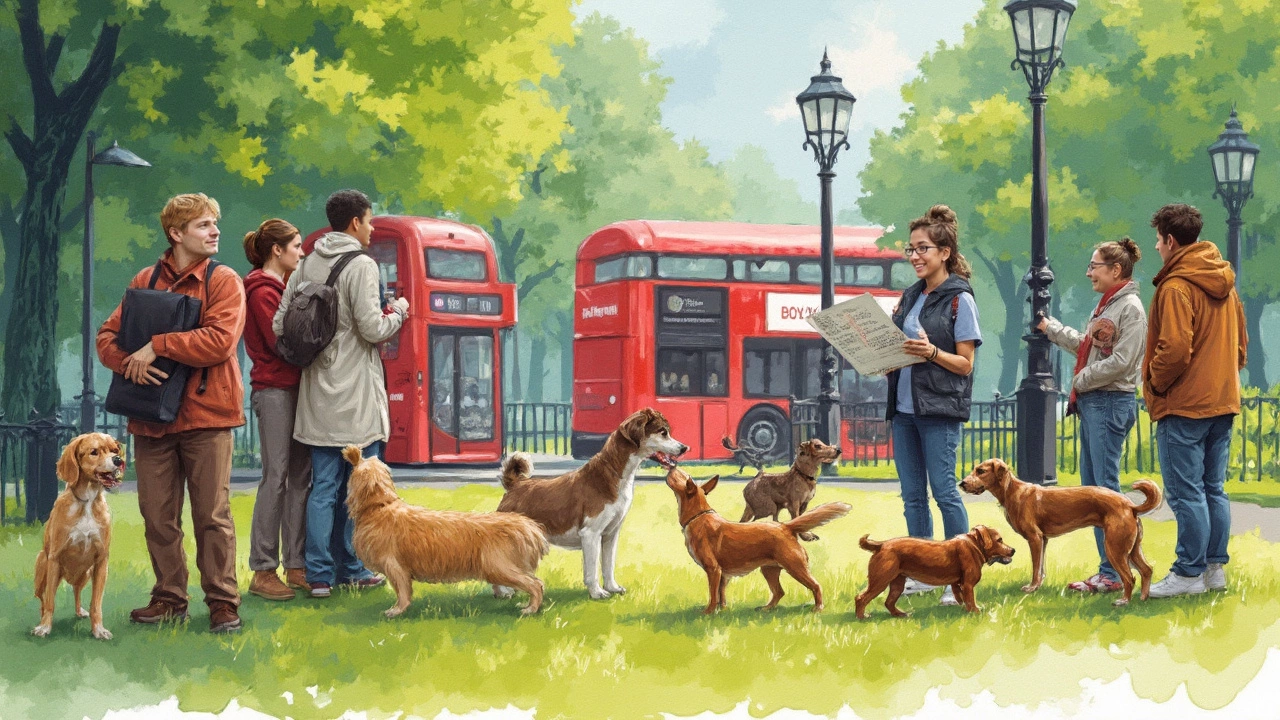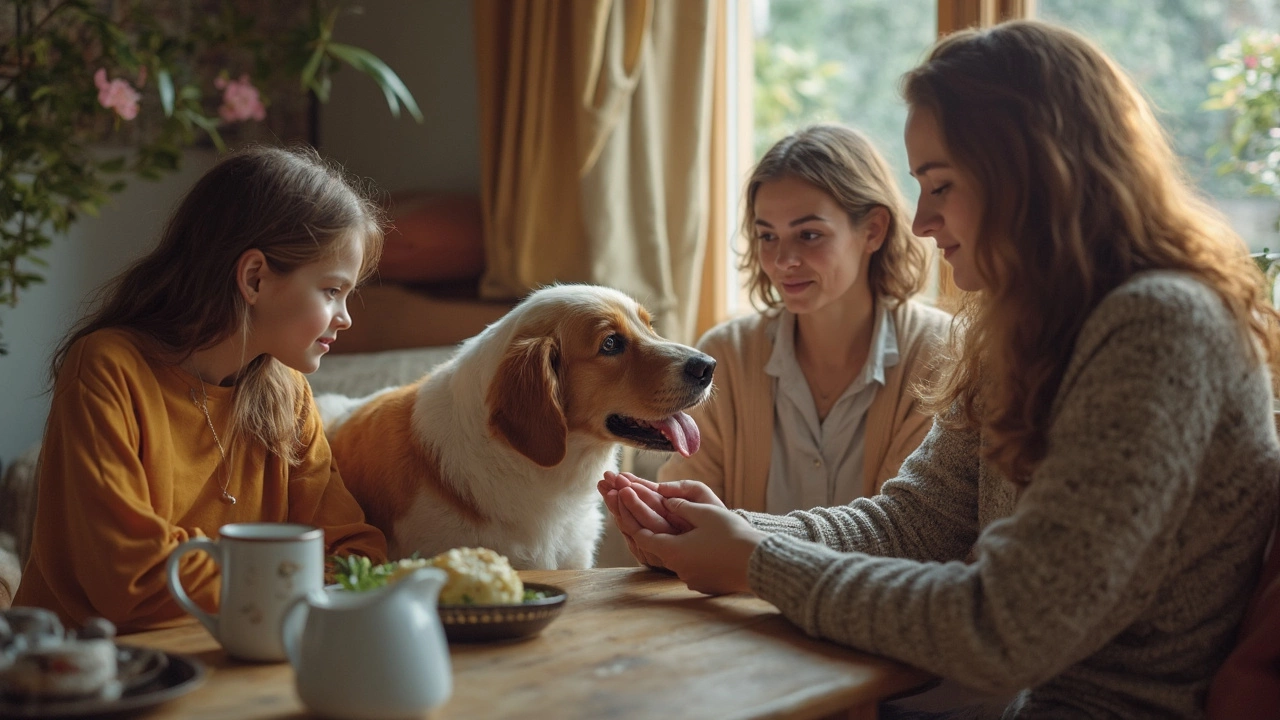Ever been pinned down by a tail-wagging, tongue-happy dog before you've even had your coffee? You're not alone. Dog lovers like me know that lick attacks come with the territory—but are they more gross than cute?
First things first: dogs lick people for tons of reasons, not just to show love. It could be stress, curiosity, or a leftover bit of peanut butter. But before you let Bruno plant a big wet one on your chin, there’s more to think about than sticky cheeks. Dog mouths are not as magically clean as some like to claim. They carry bacteria and sometimes even parasites or viruses. Most of the time, this isn’t a big deal for healthy folks, but people with weak immune systems or kids can be at risk.
If you just can’t say no to puppy smooches, there are ways to be smart about it. Stick to the cheek or chin, keep your dog on a balanced diet (a supplement might help if your vet recommends), and wash up after. There are even signs your dog’s licking could be saying something about their health, so knowing how to read the situation can actually help you care for them better.
- Why dogs lick people in the first place
- What could be lurking in your dog’s mouth?
- Can dog germs actually make you sick?
- Simple ways to stay safe without rejecting your dog
- When dog licking signals a health issue for your pup
Why dogs lick people in the first place
If you've wondered why your dog licks you, you’re definitely not alone. Science actually has some pretty straightforward answers. Licking is one of the first things a puppy learns from its mom. It’s about getting attention and showing affection, but it also plays a role in how dogs communicate with people and other pets. And yes, sometimes it’s just because you taste a bit salty after a workout or dinner.
Dogs use licking to gather info too. Their tongues have lots of sensors, and they’re checking out everything from your mood to what you ate for lunch. Ever notice your dog aims for your face or hands? Turns out your skin releases certain smells and tastes that dogs love. Some experts say dogs even pick up on changes in your body, like shifts in your sweat or hormones.
But it’s not always sweet and simple. Licking can also mean your dog is bored, stressed, or anxious. Some breeds lick more than others, just like personalities vary. If your dog’s licking goes from cute to annoying, or seems obsessive, it may be a sign to check in on their routine or mental health.
- dog licking is most common in young dogs learning social behaviors.
- Puppies often lick their moms for comfort or to signal hunger.
- Adult dogs might lick your face as a sign of trust or to greet you, just like wild dogs do in packs.
- Licking can release feel-good endorphins for your dog, helping them calm down.
Just to give you a sense of how often this happens, here’s what a recent survey of dog owners found:
| Reason for Licking | % of Owners Noticed This |
|---|---|
| Showing affection | 78% |
| Asking for food or attention | 56% |
| When owner is sweaty or salty | 44% |
| When dog seems anxious | 31% |
So, if you’ve got a licky dog, odds are they’re just trying to connect. But keep an eye on changes—persistent or sudden licking might mean a health issue or stress. Understanding these motives is your first step in making licking safer and more manageable for both of you.
What could be lurking in your dog’s mouth?
If you think your dog’s mouth is cleaner than yours, it’s time for a quick reality check. There are over 600 types of bacteria that can show up in a dog’s mouth. From food scraps stuck in their teeth to whatever they found on their last walk (Misty would object, but my dog Bruno seems to think garbage is gourmet), a dog’s mouth is a busy place.
Bacteria aren’t the only things in there. Dogs can also carry parasites like roundworms and hookworms, especially if they gobbled something nasty outdoors. If your pup loves to dig in the dirt, hunt critters, or munch on animal poop, there’s a good chance they’ve picked up a few uninvited guests in their mouth or on their tongue. Viruses like rabies are rare if your dog is vaccinated, but it’s a thing to remember with strays or unknown dogs.
- dog licking can pass on bacteria like Pasteurella, Staphylococcus, and Capnocytophaga. While these bugs usually don’t bother healthy adults, they can be nasty for people with weak immune systems or open wounds.
- Tartar and leftover food in a dog’s mouth are a buffet for bacteria, making dental care super important.
- Salmonella and E. coli can pop up if your dog eats raw diets or likes to browse the cat’s litter box.
Here’s a quick look at what might really be hitching a ride on your dog’s tongue:
| Germ/Parasite | Where it comes from | Risk to People |
|---|---|---|
| Pasteurella | Dog saliva & dental plaque | Can infect bites/wounds |
| Capnocytophaga canimorsus | Normal bacteria in dog mouths | Rare infections, mainly in those with weak immune systems |
| Salmonella/E. coli | From raw food, outdoors, trash | Food poisoning symptoms |
| Roundworms/Hookworms | Eating feces, soil, prey | Possible transfer from licking, especially to kids |
This isn’t about scaring you off dog kisses. Most dogs on good diets and routine vet care are low risk. But knowing what hangs out in a dog’s mouth helps you make smarter calls about when, where, and how you let your pup smother you with love.

Can dog germs actually make you sick?
This is the question everyone secretly worries about but hates to ask. The short answer: yes, dog germs can make people sick, but it usually depends on your health, your dog's health, and how those germs get from tongue to you.
Dog mouths are home to bacteria like Capnocytophaga, Pasteurella, and even the same dog bacteria that can cause gum disease in humans. Most of the time, these bugs just hang out in your pet’s mouth without trouble. But if they get into cuts, eyes, or your mouth, things can get gnarly—particularly for young kids or anyone with a weak immune system. There’s also the risk of worms and parasites (think roundworms or hookworms) if Bruno enjoys snacking on, let's say, less-than-clean things in your backyard.
You’re way more likely to get sick from bacteria if your skin is broken, or if your dog is licking your face and you accidentally get spit in your mouth or eyes. For most healthy adults, this stuff is super rare, but here’s what the numbers actually look like:
| Germ or Infection | How Common? | What It Might Cause |
|---|---|---|
| Capnocytophaga | Rare (~0.67 cases per million people per year) | Serious infection if you’re very immunocompromised |
| Ringworm | Not uncommon | Red, itchy rash |
| Roundworm/Hookworm | More likely in puppies or dogs not on parasite prevention | Digestive issues, fever, sometimes worse symptoms |
| MRSA | Very rare from dogs | Serious skin infections |
It’s not just bacteria and worms. If your dog picks up a stomach bug (like Salmonella or Campylobacter), they can spread it through their saliva or licking, especially after eating raw meats. Handwashing and routine vet visits can cut this risk way down.
So, should you panic? No. But if you have a newborn at home, a grandparent with a weak immune system, or open sores, watch those licks. Keep up with deworming, good hygiene, and regular vet care, and slobbery kisses are way less risky.
Simple ways to stay safe without rejecting your dog
Saying no to dog kisses sounds harsh, especially when those big hopeful eyes are involved. But you don’t have to choose between your health and your best friend’s affection. There are easy ways to keep things safe for everyone—no guilt trips required.
Let’s start with the basics. Stick to letting your dog lick spots where your skin isn’t broken—avoid lips, eyes, noses, and any fresh cuts. Germs and bacteria have a much harder time causing trouble on healthy, unbroken skin. Washing up after a love attack is also a good move, and it’s extra important for kids, who tend to be magnets for face-licks and also tend to rub their faces without thinking.
- Keep your pup’s face clean. Wipe their muzzle with a damp cloth after meals or play.
- Brush your dog’s teeth regularly—many vets recommend at least three times a week.
- Keep your dog up-to-date on deworming and checkups. A healthy dog is less likely to pass on something you don’t want.
- Use a dog health supplement if your vet suggests it—some dietary needs can impact oral health.
- Make hand-washing a habit after playing with your dog, especially before eating.
Here’s a quick look at how bacteria can stick around after a lick, according to studies:
| What’s on a dog's tongue? | Survival on human skin |
|---|---|
| Pasturella spp. | Up to 3 hours |
| Staphylococcus aureus | Up to 2 hours |
| Capnocytophaga canimorsus | Up to 1 hour |
Most healthy adults won’t have issues from casual contact, but that doesn’t mean you should skip basic hygiene. If your dog is extra slobbery or has a habit of licking EVERYTHING (hello, Bruno), a bit of extra cleaning goes a long way. Pregnant women, elderly folks, and anyone with a weak immune system should be especially careful—let your dog show love in ways other than face-licks.
The good news is you don’t have to act like a germaphobe or ban kisses forever. With a few simple changes and awareness, you and your dog can keep the affection—and your health—going strong. Remember, brushing and regular vet care keep both your dog’s mouth and your peace of mind a lot cleaner. And if you’re wondering—yes, that regular dog licking habit is something you can manage safely.

When dog licking signals a health issue for your pup
Everyone jokes about dogs licking everything, but sometimes nonstop licking isn’t just a cute quirk—it can be a red flag that there’s something off with your dog’s health. Obsessive licking (especially paws, air, or furniture) can mean itching, pain, tummy troubles, or even anxiety. If your dog zooms from licking your face to gnawing their own paws all afternoon, it’s time to look a little closer.
What should you watch out for? Check out these classic warning signs. If your dog shows one or more, don’t just brush it off as weird dog stuff:
- Licking the same area over and over, even making the skin raw or red
- Suddenly fixated on licking paws or their rear end
- Licking furniture, the air, or their bed obsessively
- Licking right after eating or when laying down, especially if combined with drooling or swallowing a lot
Here’s a quick snapshot of what repetitive licking can signal, along with things to ask your vet about:
| Possible Reason | What to Watch For | What You Can Do |
|---|---|---|
| Allergies | Paw licking, chewing, ear scratching, irritated skin | Ask the vet about diet changes, allergy supplements, or medications |
| Anxiety/Stress | Licking furniture, self, or you for comfort | Try calming routines, more play, or anxiety aids |
| GI Trouble | Licking lips or air, swallowing a lot, vomiting | Rule out diet issues, talk to vet if persistent |
| Pain (joints, injury, infection) | Licking the same joint or sore spot, limping | Check for wounds, see a vet for exam and possible pain relief |
If you catch a sudden change in licking habits, or your dog just can’t seem to stop no matter what, act fast and grab a vet appointment. Sometimes a new dog health supplement, allergy relief plan, or even just more playtime goes a long way, but it’s better to get a pro’s opinion. Your dog can’t tell you when something’s wrong, so being alert to these signs keeps both of you smiling—and hopefully a little less slobbery.

